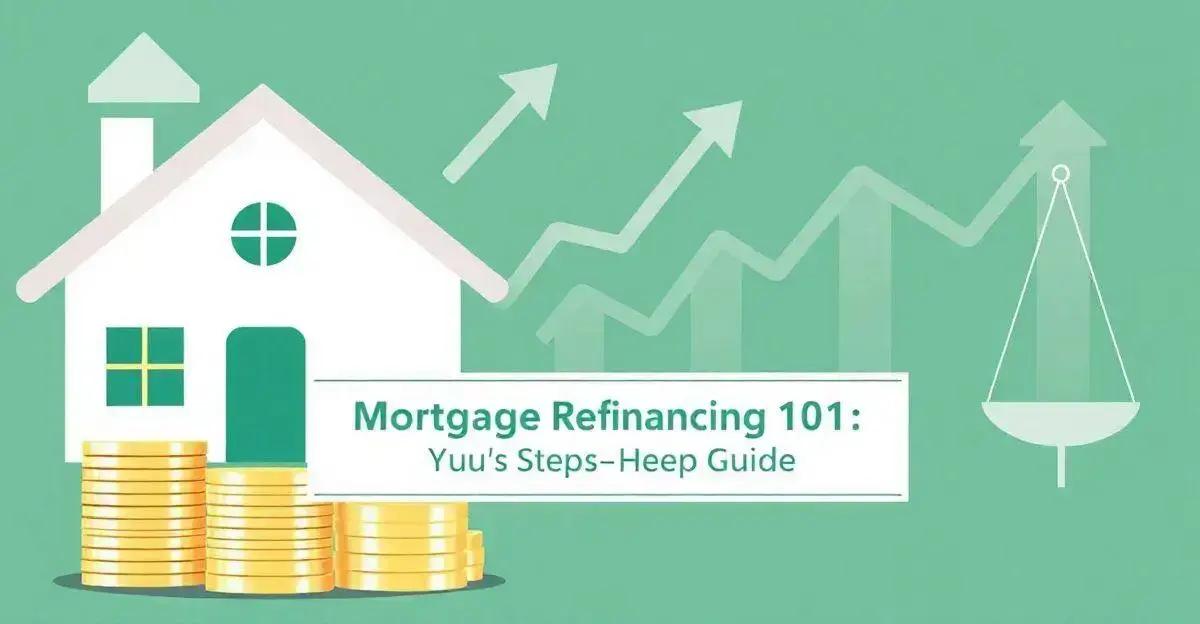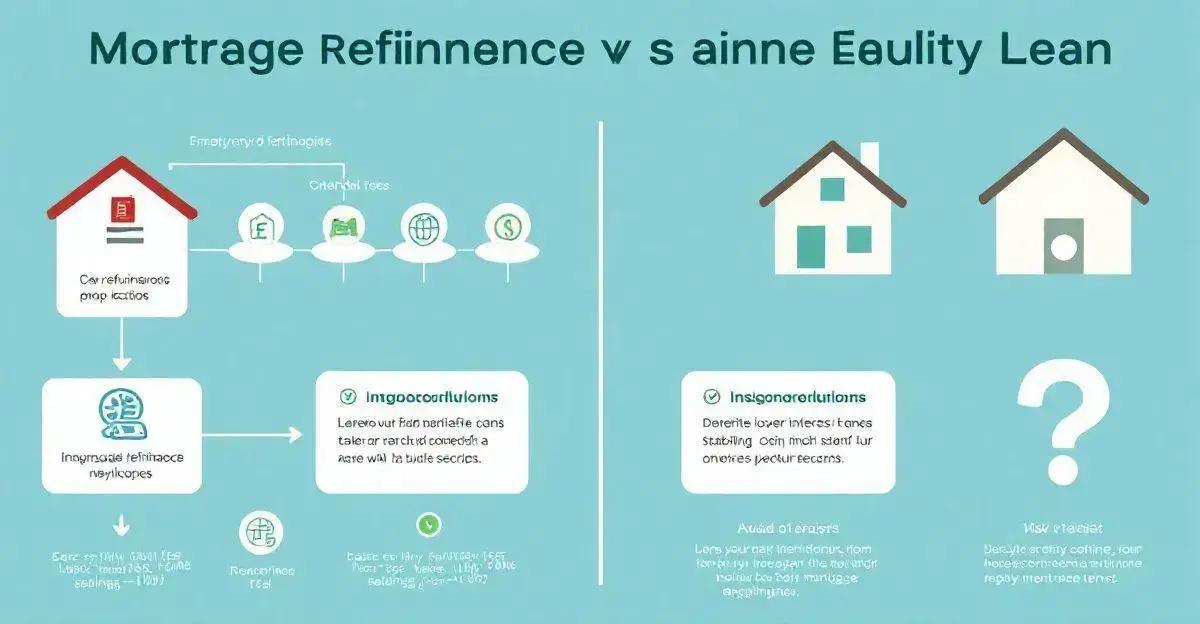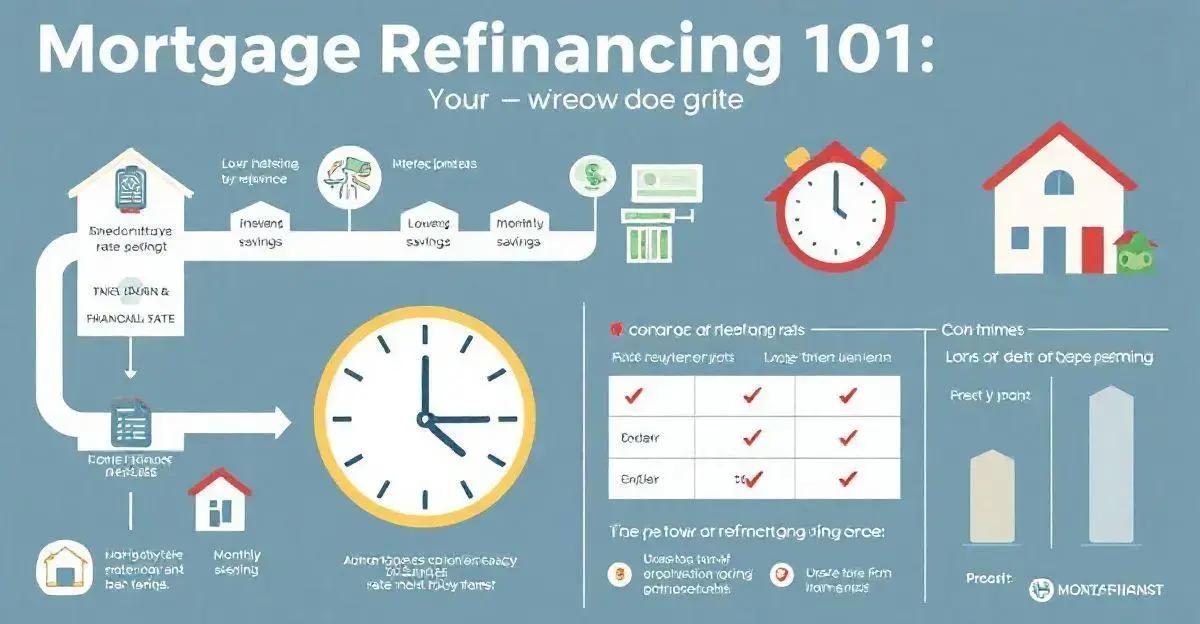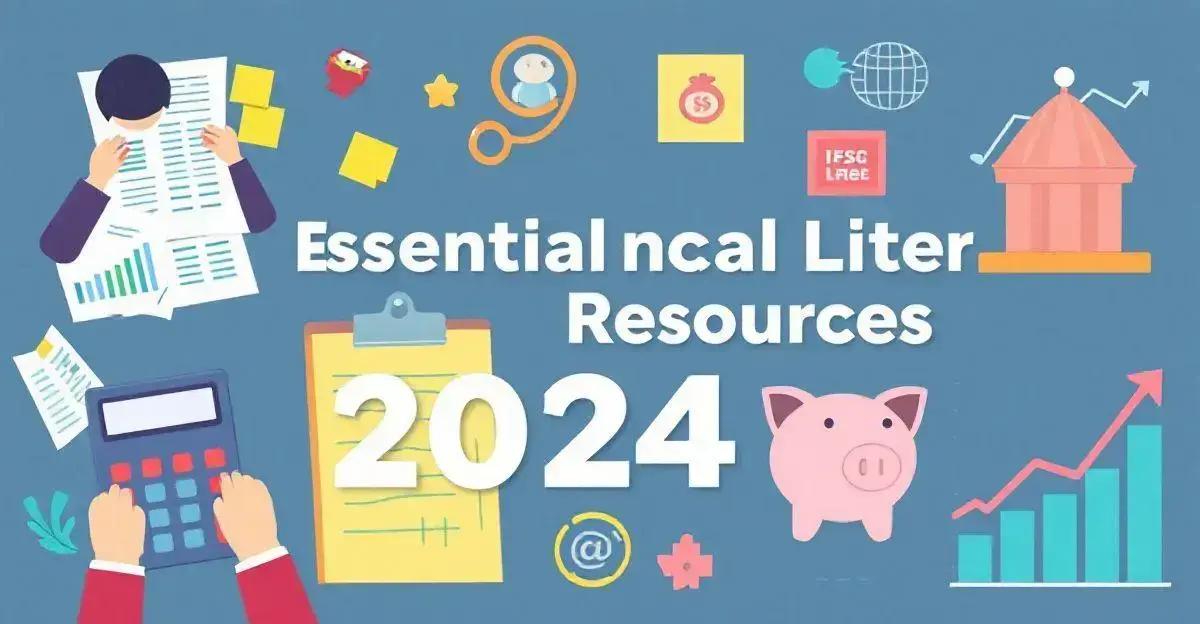Are you considering Mortgage refinancing to take advantage of lower interest rates or tap into your home’s equity? While refinancing can be a smart financial move, it’s crucial to weigh the benefits against the potential risks.
In this post, we’ll explore the ins and outs of mortgage refinancing, including the key factors to consider and the potential drawbacks.
Is Mortgage Refinancing Right for You?
Mortgage refinancing can be a complex process, but understanding the basics can help you make an informed decision. Refinancing your mortgage can help you take advantage of lower interest rates, tap into your home’s equity, or switch from an adjustable-rate to a fixed-rate mortgage. However, it’s essential to consider your financial goals, credit score, and loan terms before refinancing. With the right strategy, mortgage refinancing can be a smart financial move, but it’s crucial to avoid common mistakes that can lead to higher costs and longer loan terms.
Mortgage refinancing can offer several benefits, including reducing your monthly mortgage payments, saving thousands of dollars in interest over the life of the loan, and increasing your cash flow. Refinancing to a lower interest rate can also help you build equity in your home faster. Additionally, refinancing can provide an opportunity to switch from an adjustable-rate to a fixed-rate mortgage, offering greater stability and predictability in your payments. By refinancing your mortgage, you can achieve your financial goals and improve your overall financial health.
Mortgage refinancing is not without risks, including closing costs, origination fees, and potential penalties for early repayment. Refinancing can also increase your debt-to-income ratio, making it more challenging to qualify for other loans or credit cards. Additionally, refinancing can lead to longer loan terms, resulting in higher total interest paid over the life of the loan. It’s essential to carefully weigh the benefits and risks of refinancing to ensure it’s the right decision for your financial situation.
Deciding when to refinance your mortgage depends on various factors, including interest rates, loan terms, and your financial goals. Refinancing may be a good option if you’ve experienced a significant drop in interest rates or if you’re looking to switch from an adjustable-rate to a fixed-rate mortgage. You may also want to consider refinancing if you’re looking to tap into your home’s equity or reduce your monthly mortgage payments. By carefully evaluating your financial situation and goals, you can determine when refinancing is the right move for you.
Refinancing your mortgage involves several steps, including checking your credit score, gathering financial documents, and selecting a lender. It’s essential to shop around and compare rates and terms from multiple lenders to find the best deal. You should also consider working with a mortgage broker or financial advisor to help guide you through the process. By following these steps, you can secure a refinancing deal that meets your financial needs and goals.
When considering refinancing your mortgage or taking out a home equity loan, it’s essential to understand the differences between the two options. A home equity loan provides a lump sum of cash upfront, while mortgage refinancing allows you to refinance your existing mortgage. Both options have their own benefits and drawbacks, and the right choice for you will depend on your financial goals and situation. By carefully evaluating your options, you can make an informed decision that meets your needs and improves your financial health.
The Benefits of Mortgage Refinancing

The benefits of mortgage refinancing are numerous, including reducing your monthly mortgage payments, saving thousands of dollars in interest over the life of the loan, and increasing your cash flow.
Refinancing to a lower interest rate can also help you build equity in your home faster. Additionally, refinancing can provide an opportunity to switch from an adjustable-rate to a fixed-rate mortgage, offering greater stability and predictability in your payments.
With refinancing, you can achieve your financial goals and improve your overall financial health.
The Risks of Mortgage Refinancing
Mortgage refinancing is not without risks, including closing costs, origination fees, and potential penalties for early repayment.
Additionally, refinancing can increase your debt-to-income ratio, making it more challenging to qualify for other loans or credit cards.
Furthermore, refinancing can lead to longer loan terms, resulting in higher total interest paid over the life of the loan.
It’s essential to carefully weigh the benefits and risks of refinancing to ensure it’s the right decision for your financial situation.
When to Refinance Your Mortgage

Deciding when to refinance your mortgage depends on various factors, including interest rates, loan terms, and your financial goals.
Refinancing may be a good option if you’ve experienced a significant drop in interest rates or if you’re looking to switch from an adjustable-rate to a fixed-rate mortgage.
You may also want to consider refinancing if you’re looking to tap into your home’s equity or reduce your monthly mortgage payments.
By carefully evaluating your financial situation and goals, you can determine when refinancing is the right move for you.
How to Refinance Your Mortgage
Refinancing your mortgage involves several steps, including checking your credit score, gathering financial documents, and selecting a lender.
It’s essential to shop around and compare rates and terms from multiple lenders to find the best deal.
You should also consider working with a mortgage broker or financial advisor to help guide you through the process.
By following these steps, you can secure a refinancing deal that meets your financial needs and goals.
Mortgage Refinancing vs. Home Equity Loan

Mortgage refinancing and home equity loans are two popular options for homeowners looking to tap into their home’s equity or reduce their monthly mortgage payments.
While both options can provide financial benefits, they have distinct differences.
Mortgage refinancing involves replacing an existing mortgage with a new one, often with a lower interest rate or longer loan term.
Home equity loans, on the other hand, provide a lump sum of cash upfront, with a fixed interest rate and repayment term.
By understanding the differences between these two options, you can make an informed decision that meets your financial needs and goals.
Frequently Asked Questions about Mortgage Refinancing
What is mortgage refinancing?
Mortgage refinancing is the process of replacing an existing mortgage with a new one, often with a lower interest rate or longer loan term.
What are the benefits of mortgage refinancing?
Mortgage refinancing can provide several benefits, including lower monthly payments, lower interest rates, and the ability to tap into your home’s equity.
What are the risks of mortgage refinancing?
Mortgage refinancing involves some risks, including closing costs, origination fees, and potential penalties for early repayment.
When should I refinance my mortgage?
You should consider refinancing your mortgage if you’ve experienced a significant drop in interest rates, if you’re looking to switch from an adjustable-rate to a fixed-rate mortgage, or if you’re looking to tap into your home’s equity.
How do I refinance my mortgage?
Refinancing your mortgage involves several steps, including checking your credit score, gathering financial documents, and selecting a lender.
What is the difference between mortgage refinancing and a home equity loan?
Mortgage refinancing involves replacing an existing mortgage with a new one, while a home equity loan provides a lump sum of cash upfront with a fixed interest rate and repayment term.
What are the pros and cons of mortgage refinancing?
The pros of mortgage refinancing include lower monthly payments, lower interest rates, and the ability to tap into your home’s equity, while the cons include closing costs, origination fees, and potential penalties for early repayment.



